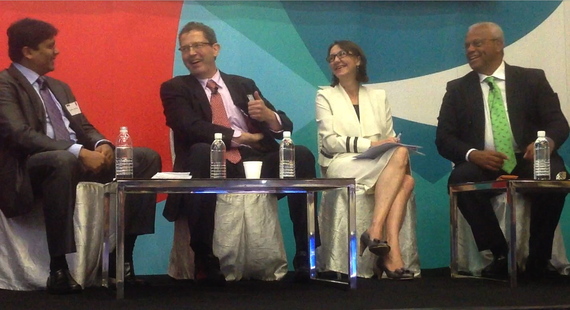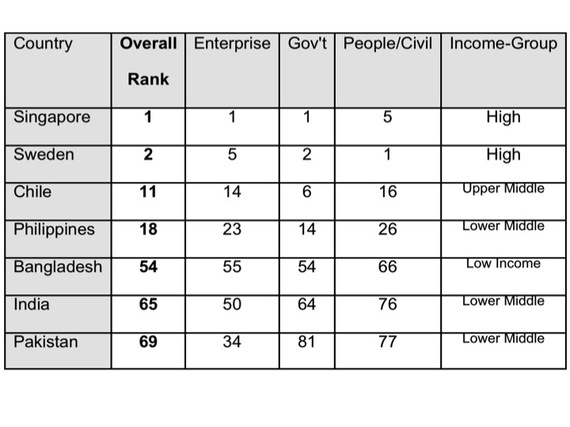Change Has Changed
What makes one country better prepared for change than another? This is the question that I sought to explore when I responded to an invitation by Lord Michael Hastings, Global Head of Citizenship at KPMG, to join him and others at a panel discussion recently in Singapore. Why does it matter that one country is more change-ready than another?
It matters firstly because change isn't what it used to be. In a hyperconnected world of complex systems, change 'of the kind that we do not have control over' impacts us with speed and in dimensions that are unprecedented.
Much of the changes that we're buffeted with today is structural -- which is why we can have growing unemployment and a growing number of job-vacancies at the same time -- and typically, it is a continual process of action and reaction without a stable destination.
On this backdrop, the question is not how good we are at what we do now. The question is how well we will fare if our cheese moves. Change-readiness, to paraphrase Alvin Toffler, is a measure of how quickly we can learn, unlearn and relearn.
The KPMG Index of Change Readiness is made up of competencies in the three broad sectors of a country: (a) the Enterprise or Corporate sector, (b) Government and (c) People or Civil Society. The universe of ninety countries is classified into four income-groups and the data include both quantitative and qualitative measures.
I make three non-exhaustive observations from the 2013 index:
SINGAPORE AT THE TOP
Singapore is 1st overall, driven by its number one ranking in both the Enterprise and Government pillars. However, it ranks 5th in the People/Civil Society pillar. This is almost the mirror image of the 2nd ranked country, Sweden. It would appear that Singapore has more change-ready corporations and a more change-aware government than Sweden but as individuals or associations, the Swedes are better change-agents.
Singapore's strong showing is not surprising given that she ranks second and third respectively in the World Economic Forum's Competitiveness and Human Capital indices. I am reminded of the characterisation, by Boon Siong Neo and Geraldine Chen, of the Singapore approach as "Think Ahead, Think Across & Think Again".
GOVERNANCE IS KING
It is obvious from the index that competence of government supersedes everything else. Those countries that rank in the overall top-three are also countries with the three most change-ready machinery of government. Countries that perform better than what might be expected from their income level are distinguished by their outperformance in the government pillar. For example, Philippines and Rwanda appear to have a more change-ready government than the United States and Portugal respectively!
BANGLADESH
As a low-income country and one of the most densely-populated countries in the world, Bangladesh arguably outperforms its logical benchmark with an overall rank of 54th. It also shows a balanced scorecard -- 55th for Enterprise, 54th for Government and 66th for People/Civil society -- unlike some other countries that display a heavy skew towards one dominant pillar.
Pakistan and India show up at 65th and 69th respectively, better than Bangladesh in Enterprise but both less change-elastic when it comes to Government or Civil Society capability.
The KPMG 2013 Change Readiness Index, like all indices, is a reductionist measure that is intended to capture flavor not detail and to create debate, not dogma. It is an important, initial exploration in assessing the adaptability of societies and economies in a world of constant change.
Lutfey Siddiqi was member of the panel on "Change Readiness" at the 2014 International Development Conference hosted by KPMG & UNDP in Singapore on 30th April 2014.
(Photo credit: Deborah Heng)

